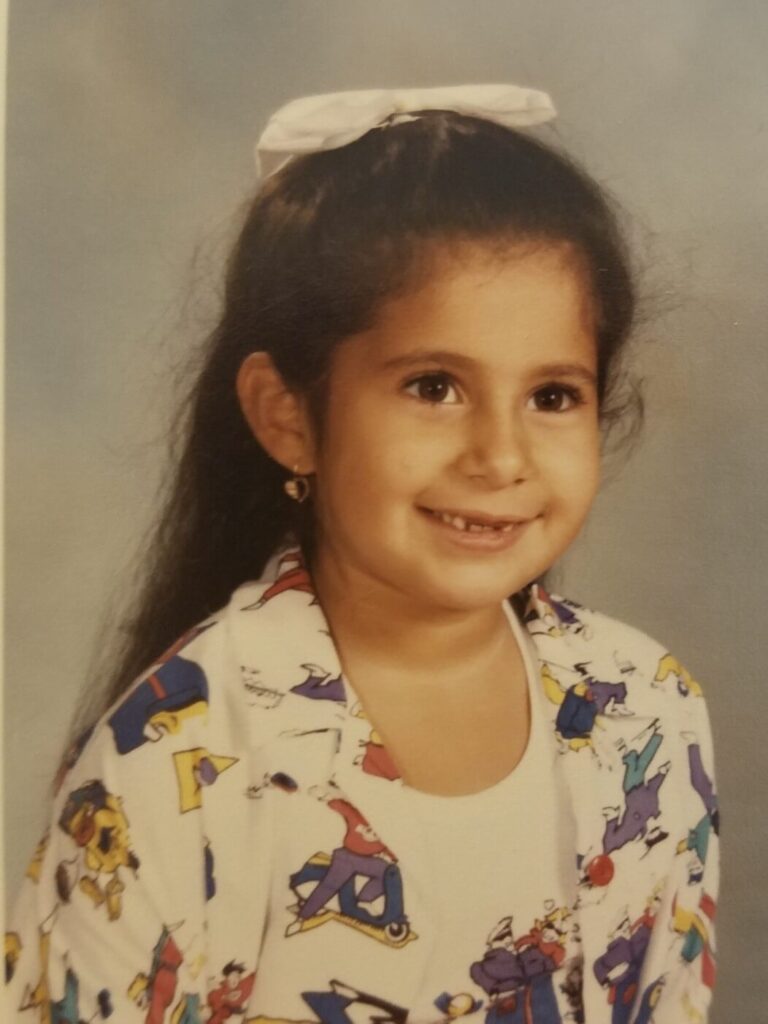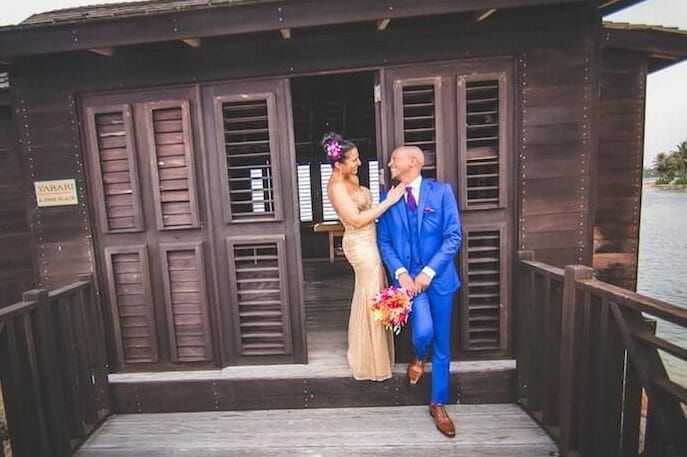“My family is broken. My parents disown people. It’s just a thing they do.” This well-rehearsed statement made with a smile and lighthearted voice was something I delivered for decades. Until it was my time to become a fractured piece. You see, my sisters already experienced this ultimate punishment. I always knew it was coming for me, but hoped with everything in me that it never would. Sadly, I was attempting to outrun a racecar. When my day came, it shattered my belief in unconditional love.
When Unconditional Love Becomes Conditional
Of course it was painful. It still is. In fact, I don’t talk about it much outside of conversations with my coach or my husband. I try not to dwell on it with my sisters, since they carry their own wounds. And I haven’t felt safe to share it here, either. A big part of me doesn’t want to hurt them, the people who were supposed to love me and my sisters unconditionally. If by some random chance they came upon this, it hurts me to think I could hurt them. So, I throw myself on the grenade instead.
“What happens in the family stays in the family.”

Carrying the Weight of Family Secrets
For the first time, I’m realizing that I’m still terrified of their rage. I’ve witnessed it with each erasing of relationships. I heard the hateful letters written to other family members who spoke out, saw everyone else become the bad guy. I don’t want to be on the receiving end of that. The conversation where I was cut off was enough for me.
So if I’m a good girl and keep quiet, nobody will hurt me. I can’t be disrespectful. I know how to follow the rules. This is how I learned to stay safe.
When we don’t feel safe, our brain sends us into survival mode – fight, flight, freeze, or appease. My default survival reactions are freeze and appease. In the book Mother Hunger, Kelly McDaniel says a freeze response in a baby is them learning to give up. “She is learning that her needs won’t be met, that human connection can’t be trusted.” Sounds familiar, doesn’t it?
Cultural Silence Around Family Fracture
Culture has taught us to respect, love, and honor our parents. The idea of the relationship being anything other than Leave It To Beaver happy is not okay. Just like the show, our “norms” around family are very black and white. You either love your parents and have the closest relationship with them or hate them with a passion because they’re the scum of the earth (and probably in jail or drank themselves to death). Where’s the in between where you love them because you are someone who loves but you don’t speak and that’s okay?
There’s no room in our current storyline for holding contrasting emotions or situations. Both things can be true at the same time. Despite the pain that comes with it, the separation sets you free. Now you don’t have to be so damn terrified that everything you say and do has to be perfect to appease their needs, their comfort zone, their preferences, their moods.
The Freedom of Fracture
Where is the greeting card for the daughter or son who was disowned, discarded, abused, showed that they don’t really matter? Not one that offers pity or sympathy. One that celebrates us for being allowed to breathe easily and show up authentically.
Transparently, I can’t come across a post about how much someone loves their mom or dad without feeling a hint of pain, discomfort, the inability to understand, occasional envy, or noticeable disconnection. For some of us, hearing things like “my mom is the greatest” doesn’t resonate. It isn’t a universal feeling. It’s actually a reminder of the fractured family.
My brain and my heart and my whole being hold many conflicting emotions. It’s easier to just close the app. I intentionally stay away from social media on holidays to protect myself.
It’s been five years since I was disowned and I’ve had to disconnect to survive.
Here’s what 23 years of healing work has taught me – your mind protects you until you’re ready. And if you don’t catch the signs, it will force you to slow down and look directly at the pain. Three dances with depression later, I’m a Milwaukee Brewers level catcher. (I Googled it – that team has the best one. Look at me, being all sporty.)
Ripple Effects of Parental Rejection
Even with all this healing experience, I still didn’t expect how this would ripple out into all other areas of my life.
It started with my husband. Once my parents disowned me, the nightmares about David cheating increased. Each night was worse and more intense than the one before. Falling asleep became terrifying because I didn’t want to face the pain of losing my husband. Naturally, each nightmare inferred that it was all my fault. I wasn’t enough to “keep my man.” I was failing.

(To be clear, David has never cheated and doesn’t give me any reason to believe he would. It’s just that bastard version of him that shows up when we’re both sleeping who I can’t trust. The new manifestation of my fear that nobody will love me unconditionally.)
Pressure to Be Perfect
Then the pandemic hit. Three months later, my bonus daughter’s bio mom stopped picking her up. Suddenly, I’m a full time mom, new business owner, parentless daughter, married to a dream cheater, stuck inside while the world has stopped.
I started to shrink myself in my home. I needed to be perfect, to prove myself every day so that I could earn love. Then I stopped sharing who I am in all of my silliness out of fear that I’d be picked apart.
Since I didn’t feel safe to be in a bad mood, a smile was ever present. I held on to that façade for years before I got bitter. That grew into resentment and then anger and finally rage.
Safe Spaces for Emotional Release
All of that shrinking and negativity were festering inside of me. But I was never allowed to get angry, so I didn’t know how. It was the most uncomfortable feeling for me. If I even dared get angry, my body would shake uncontrollably and the tears would not stop. All of these emotions had nowhere to go. I had to find a healthy way to release them.
That led me to the rage room, my sanctuary. With each bottle I smashed with a baseball bat or tire iron, I would name what I was angry at. I channeled my anger into each swing and left it there along with all the broken glass. Releasing this created space for the good things I want to feel and experience.
Breaking the Cycle of Family Fracture

I tell you all of this because it’s not talked about enough to be the norm. If you have a less than picture perfect relationship with your parents, I want you to know it’s okay. If you have feelings other than gratitude and that makes you feel guilty, you’re not alone. We don’t talk about the discomfort. We bottle it up to survive or fit in or both. And it sucks to try and explain this to someone who hasn’t experienced it. (Or likely they haven’t faced their mixed emotions because cultural conditioning won’t allow it.) You’re safe here. I get it.
Here’s the thing. We have the opportunity to face the demons of our past in an empowering way. It requires two big concepts – self-worth and self-love. Those need more nourishment and support than reading inspiring quotes on social media or a lovefest from your besties. Because life is constantly doing its thing and the way our brains work, we don’t just wake up one day and feel unshakeable worthiness and unconditional self-love. This is a daily practice.
Even to this day, the fear of conditional love shows up in subtle ways. For example, each week as I create the grocery list I have an internal battle whether to include food that only I will enjoy. Let me connect the dots for you. If I buy myself the pepitas for my salads, David might get upset at the extra expense, clearly think I’m selfish, and he’ll then add it to a list of reasons to not love me. (I have this image of him taking out a little notebook and jotting down the offense, shaking his head, and tallying up all the reasons I’m not worth his love.)
Don’t worry – I hear it. That doesn’t make logical sense. Of course it doesn’t. But that doesn’t matter because my brain connected those dots in that specific way based on my experiences, observations, and the negative bias that naturally occurs. That’s why I make the intentional choice to teach it new ways of seeing, being, thinking, and feeling. It’s a priority to nourish your mind with better intel for a life with more ease.
Building a Foundation of Self-Worth
One practice I do for myself and with my clients is to identify the unwritten rules living in the subconscious. We bring these to the light to observe them with curiosity, not judgment. The goal is to determine if they’re serving who you are today and who you’re growing into. Do they still feel good? Were they your beliefs in the first place or did someone else imprint them? Then we rewrite the rules to design the life you’re dreaming of.
When you feel wobbly because your mind has convinced you that you’re not worthy, try this on for size.
- Write down the thought. Identifying it and getting it out of your head are two big steps in the process.
- Then wiggle your toes. Try to focus on moving each individual toe.
- Follow this up with three deep breaths; in through the nose and out through the nose.
- Then go back and look at the thought. Write down the question, “Does this make me feel good about me?”
- Write down your answer to that question.
- If it’s no (quite likely it is or you wouldn’t be wobbling), then write this down: “I choose to feel good about me.”
- Now take another three deep breaths and go back to your day.
This is a safe way to become self-aware, bring the negative noise to the forefront, regulate your nervous system, retrain your brain towards positive, and start integrating new thoughts that serve you.
Learning to Trust in Love and Self
I’d like to design that new greeting card for those of us who face the pain. Not one that wallows or offers pity, but one that celebrates our courage to change and grow. We don’t sit around blaming our parents, but we don’t pretend things are perfect. Instead, we choose to live with intention, hope, and big dreams.
We examine those unwritten rules that once controlled us and write new ones that feel liberating and nourish our souls. We create our own definition of unconditional love – starting with ourselves. These are the celebrations, the moments, the stories that I’m interested in sharing.
Dream David hasn’t made an appearance in my nightmares for quite some time now. My husband helps me believe in unconditional love, again. He shows me every day that I’m worthy of it. I’m incredibly grateful for him. While that is an important element of my marriage, it’s my responsibility to heal.
Cultivating my own sense of unshakeable worthiness is the most important daily practice I’ve ever committed to.
If you’re ready to love yourself unconditionally and create your dream life, you don’t have to walk this path alone. Schedule a free Dream Discovery call with me today. Together we can rewrite the rules and design the life that honors who you truly are.
